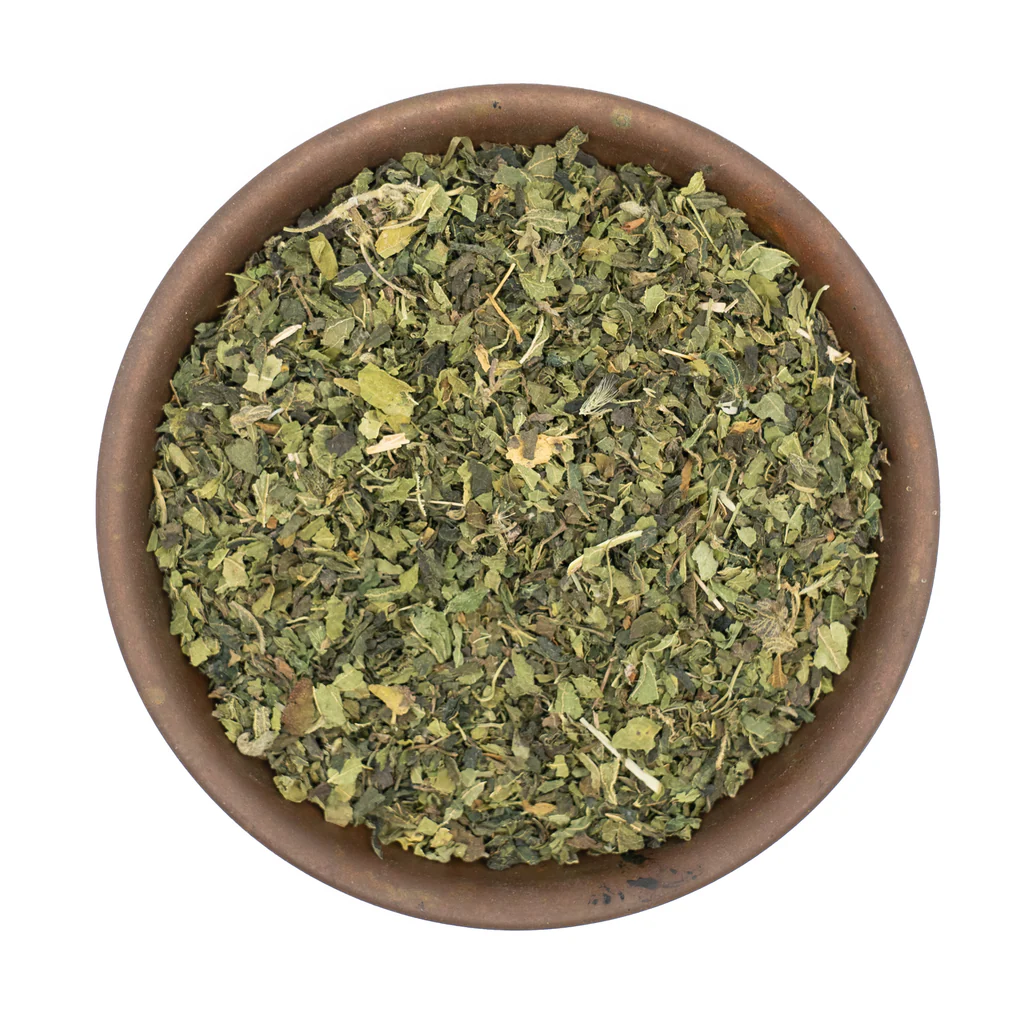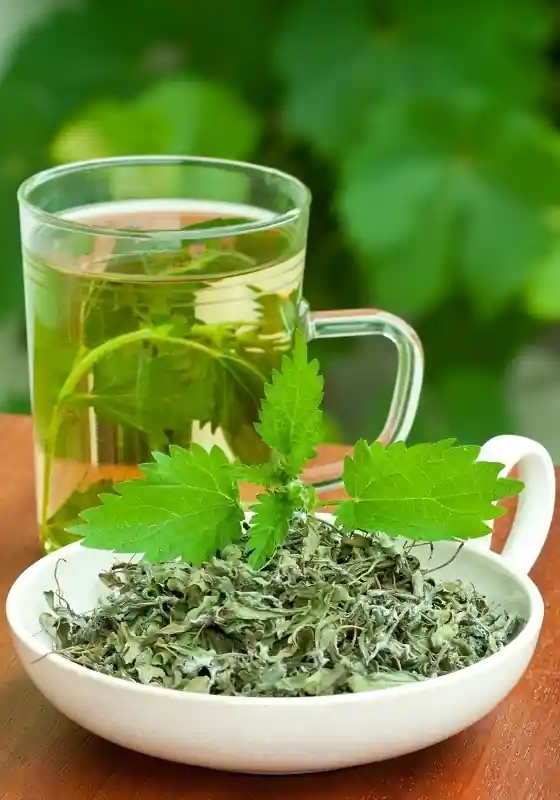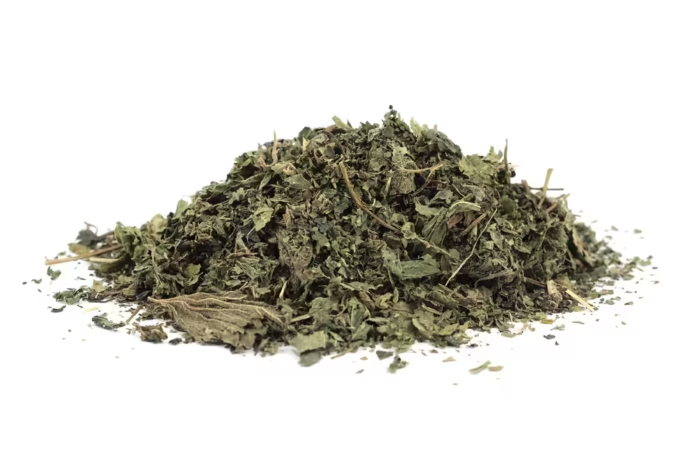INTRODUCTION:
Nettle leaves come from the stinging nettle plant, also known as Urtica dioica. Although the fresh leaves have tiny hairs that can cause a stinging sensation when touched, they become safe to eat or use once they are dried or cooked. Nettle leaves are rich in nutrients such as vitamins A, C, and iron, and have been used for centuries in traditional medicine and food. People use nettle leaves to make herbal teas, soups, and natural remedies for problems like joint pain, allergies, and skin conditions. Despite its sting, nettle is a highly valued plant for its many health benefits.

English: Nettle or Stinging Nettle
Hindi: बिच्छू बूटी (Bichhoo Booti)
Tamil: சீமை சோளக்கீரை (Seemai Cholakkirai)
Telugu: ఉరక చెట్టు (Uraka Chettu)
Urdu: کانٹے دار بوٹی (Kantay Daar Booti)
Arabic: نبات القراص (Nabat Al-Qurās)
Bengali: বিছুটি পাতা (Bichuti Pata)
Nepali: सिस्नो (Sisno)
HEALTH BENEFITS:

Rich in Nutrients:
Nettle leaves are packed with essential vitamins and minerals, including vitamins A, C, K, and B-complex, as well as calcium, iron, magnesium, and potassium, which support overall health.
Antioxidant Properties:
They contain powerful antioxidant compounds like polyphenols and carotenoids, which help protect the body’s cells from damage caused by free radicals.
Allergy Relief:
Nettle acts as a natural antihistamine, helping to alleviate symptoms of allergic rhinitis (hay fever) by blocking histamine receptors and reducing inflammation.
Anti-inflammatory Effects:
The plant’s anti-inflammatory properties make it beneficial for managing conditions like arthritis, reducing pain and inflammation in joints.
Blood Sugar Management:
Nettles can help improve blood sugar levels and increase insulin production, potentially benefiting those with diabetes.
Prostate Health:
Nettle leaf can help relieve symptoms associated with benign prostatic hyperplasia (BPH) by reducing prostate growth.
Skin and Hair Health:
Nettle’s anti-inflammatory and antioxidant properties can soothe skin conditions like acne and eczema. It also nourishes hair follicles, promoting stronger, healthier hair.
Detoxification and Liver Support:
Nettle helps in the detoxification process by neutralizing acids in the body and promoting the excretion of toxins, supporting liver health.
Cardiovascular Health:
Some research suggests that regular consumption of nettle tea may help lower blood pressure and maintain healthy cholesterol levels.
SIDE EFFECTS:

Consuming dried or cooked stinging nettle is generally safe. There are few, if any, side effects
However, be careful when handling fresh stinging nettle leaves, as their hair-like barbs can harm your skin.
These barbs can inject an array of chemicals, such as:Acetylcholine
Histamine
Serotonin
Leukotrienes
Formic acid
These compounds can cause rashes, bumps, hives and itchiness.
In rare cases, people may have a severe allergic reaction, which can be life-threatening.
However, these chemicals diminish as the leaves are processed, meaning that you shouldn’t experience mouth or stomach irritation when eating dried or cooked stinging nettle.
Pregnant women should avoid consuming stinging nettle because it may trigger uterine contractions, which can raise the risk of a miscarriage
Speak to your doctor before consuming stinging nettle if you’re taking one of the following:
Blood thinners
Blood pressure medication
Diuretics (water pills)
Diabetes medication
Lithium
Stinging nettle could interact with these medications. For instance, the plant’s potential diuretic effect may strengthen the impact of diuretics, which can raise your risk of dehydration.
HOW TO USE:
Cooking:
Fresh nettle leaves can sting, so always wear gloves when handling them. Boil or steam the leaves for a few minutes to remove the sting. Once cooked, you can use them like spinach in soups, stews, or sautés.
Tea:

Dry the nettle leaves and steep a tablespoon of the dried leaves in hot water for about 5–10 minutes. Strain and drink as a healthy herbal tea.
Smoothies:
After cooking or drying, nettle leaves can be blended into smoothies for added nutrients.
Herbal Remedies:
Nettle leaf extracts or capsules are often used as supplements for allergies, joint pain, and inflammation. Follow package instructions if using supplements.
Skin Care:
Nettle leaves can be used in baths or made into infused oils for soothing skin irritations.
PRECAUTIONS:
Wear gloves when handling fresh nettle because it can sting your skin.
Cook or dry the leaves before eating to stop the sting.
If you feel itchy, get a rash, or have trouble breathing, stop using nettle and see a doctor.
If you have health problems or take medicine, talk to your doctor first before using nettle.
Pregnant or breastfeeding women should avoid nettle unless a doctor says it’s okay.




